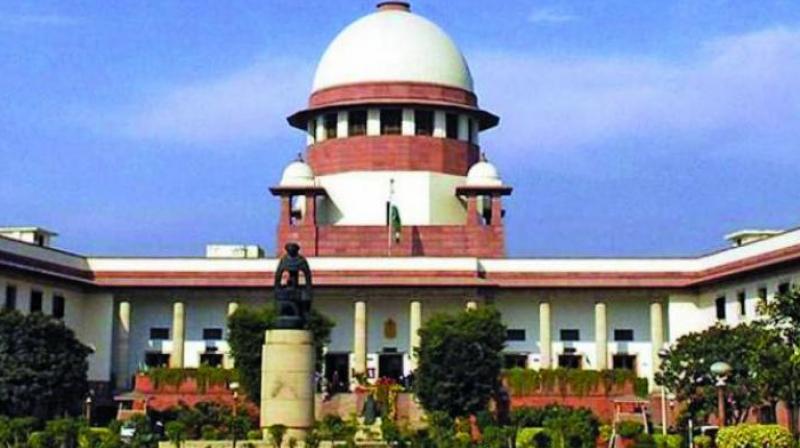10 per cent quota to bring social equality, SC told Centre

New Delhi: The Centre on Tuesday justified in the Supreme Court the recent law to provide a 10 per cent quota to economically backward sections of society and said the constitutional amendment was brought in to promote social equality by providing opportunities in higher education and employment to those who have been excluded by virtue of their economic status.
In its response to a batch of petitions challenging the law, the Centre asserted that the Constitution (103rd) Amendment Act introducing Articles 15 (6) and 16 (6) in the Constitution to provide for economic reservation does not affect the basis structure of the Constitution.
The affidavit said economic criteria has been held to be a relevant factor for determination of social and educational backwardness.
It is stated that the indicators used for identification of socio-economic backward classes cannot be used for identification of economically backward classes. Because, Economically Weaker Section classes are not homogenous, and secondly, they do not have common criteria like that of castes, on the basis of which, economic backwardness can be evolved.
It said “Merely affecting or impinging upon an Article embodying a feature that is part of the basic structure is not sufficient to declare an amendment unconstitutional. To sustain a challenge against a constitutional amendment, it must be shown that the very identity of the constitution has been altered.”
The Centre maintained that a mere amendment to an Article of the Constitution, even if embodying a basic feature, would not necessarily lead to a violation of the basic feature involved. It is asserted that the newly inserted provisions of Article 15(6) and Article 16(6) are enabling provisions for advancement of the EWS and are in fact, in conformity with the principle of affirmative action.
The challenge on the ground that EWS quota will breach 50% limit of reservation is incorrect as this limit imposed by Supreme Court in Indira Sawhney case is not applicable after Constitution amendment. “The conclusions drawn in Indra Sawhney are not applicable to the present case as the said judgment was delivered while determining the constitutional validity of certain Office Memorandums issued by the Government of India in the year 1990.”
The Centre rejected the petitioners’ argument that reservation cannot be provided only on the basis of economic criteria. It said several Committees have been set up wherein quantifiable data has been collected highlighting the need for having reservation for the economically weaker sections of the society. Economic criteria have been held to be a relevant factor for determination of social and educational backwardness.
The petitioners had argued that the concept of reservation itself is not with reference to the economic status of a person but rather in context of the community to which he belongs, with an idea to integrate that community into the mainstream system of education and employment. The court has posted the matter for further hearing on March 28.

